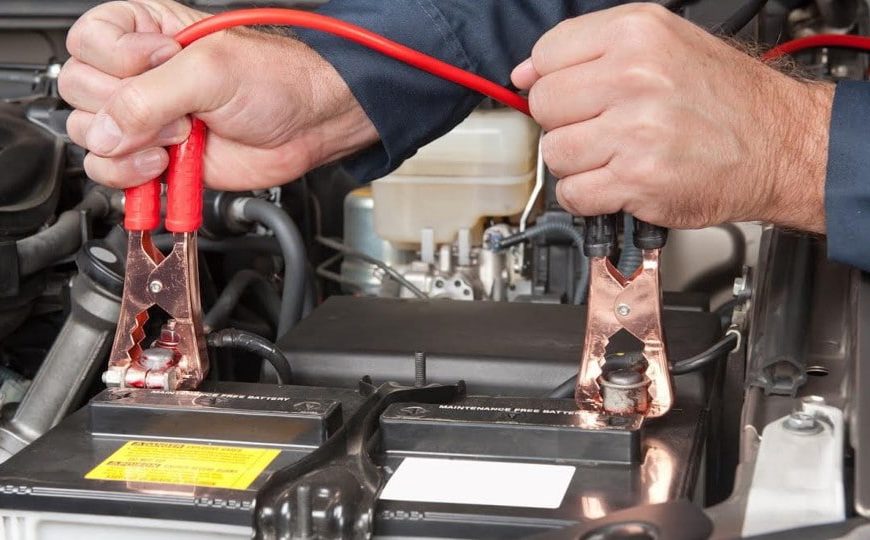The energy sector is undergoing a massive transformation, fueled by the demand for sustainable power solutions and electrification. At the center of this revolution are Battery Manufacturers, the backbone of innovations ranging from electric vehicles (EVs) to grid-scale energy storage. These key players are not only supplying power but also shaping the future of energy consumption and environmental responsibility. This article delves deep into the global landscape of battery manufacturing, highlighting the leaders, technologies, market dynamics, and future trends.
The Critical Role of Battery Manufacturers in a Changing World
As the world shifts away from fossil fuels, battery manufacturers are increasingly vital in delivering reliable and scalable energy solutions. They provide the essential infrastructure for clean technologies such as EVs, solar and wind energy systems, and portable electronics. The consistent development of high-performance batteries allows entire industries to grow sustainably, directly impacting climate targets and energy security.
Evolution of Battery Technologies
From Lead-Acid to Lithium-Ion
Battery manufacturers have progressed significantly from traditional lead-acid batteries to modern lithium-ion solutions. While lead-acid batteries are still used in automotive starters and backup systems, lithium-ion technology has become the standard for most high-performance applications due to its superior energy density, rechargeability, and longevity.
Emerging Battery Technologies
Beyond lithium-ion, manufacturers are investing in advanced chemistries like:
- Solid-state batteries: Offering higher energy density and safety.
- Sodium-ion batteries: Cost-effective and abundant material usage.
- Flow batteries: Ideal for large-scale, long-duration storage applications.
These innovations will define the next decade of energy infrastructure, pushing battery manufacturers to the forefront of the clean energy race.
Top Global Battery Manufacturers Leading the Industry
CATL (Contemporary Amperex Technology Co. Limited)
China-based CATL has quickly grown into one of the world’s most influential battery manufacturers. Known for supplying major EV brands like Tesla, BMW, and NIO, CATL continues to expand its global footprint by building manufacturing facilities in Europe and North America.
LG Energy Solution
A division of LG Chem, LG Energy Solution is a dominant player in the lithium-ion battery market. The company is recognized for its high-quality battery packs used in electric vehicles, energy storage systems, and consumer electronics. LG’s commitment to R&D ensures it remains at the cutting edge of battery innovation.
Panasonic
Panasonic, a Japanese multinational, has been a longstanding partner of Tesla and is renowned for its cylindrical lithium-ion batteries. Their expertise and long manufacturing history make them one of the most trusted battery manufacturers worldwide.
BYD (Build Your Dreams)
As both an EV and battery producer, BYD is vertically integrated, giving it control over its entire supply chain. This unique advantage enables it to innovate quickly and scale its battery production with remarkable efficiency.
Samsung SDI
Samsung SDI focuses on high-performance lithium-ion batteries for automotive and industrial use. Their batteries are known for safety and reliability, making Samsung SDI a preferred supplier for major OEMs globally.
Battery Manufacturers by Region
Asia-Pacific: The Global Battery Powerhouse
The Asia-Pacific region dominates the global battery market, with China, South Korea, and Japan home to the world’s largest battery manufacturers. Their access to raw materials, manufacturing scale, and advanced R&D capabilities allow them to lead in volume and innovation.
Europe: Rising Investments and Gigafactories
European nations are heavily investing in domestic battery production to reduce reliance on imports. Companies like Northvolt (Sweden) and Saft (France) are spearheading efforts to build sustainable and efficient battery ecosystems within Europe.
North America: Expanding Capacity and Strategic Partnerships
In North America, partnerships between automakers and battery manufacturers are fueling growth. Companies such as Tesla (with its Gigafactories), General Motors (Ultium Cells), and Ford (with SK Innovation) are investing billions to build battery facilities across the U.S. and Canada.
Challenges Facing Battery Manufacturers
Supply Chain Vulnerabilities
Battery production relies heavily on critical minerals like lithium, cobalt, and nickel. Geopolitical tensions, mining limitations, and environmental concerns can impact supply chains and production timelines.
Recycling and Sustainability
As battery usage grows, so does the need for sustainable end-of-life solutions. Leading battery manufacturers are exploring recycling methods to recover valuable materials and reduce environmental impact.
Cost and Scalability
While battery prices have dropped significantly over the last decade, further cost reductions are necessary to make EVs and energy storage accessible to mass markets. Manufacturers face the challenge of scaling production without compromising quality or increasing environmental damage.
Battery Manufacturers in the EV Industry
Electric vehicles have created an unprecedented demand for high-capacity, long-lasting batteries. Battery manufacturers must meet stringent requirements for energy density, safety, charge cycles, and temperature resistance.
OEM Partnerships
Major EV producers form long-term partnerships with battery manufacturers to ensure supply consistency and joint innovation. For example, Tesla’s collaborations with Panasonic and CATL enable faster development of customized battery cells optimized for performance and cost.
Battery Pack Design Innovations
Battery manufacturers are also innovating in pack design—such as cell-to-pack (CTP) technology—which eliminates unnecessary components, reduces weight, and increases energy efficiency.
The Role of Battery Manufacturers in Grid-Scale Energy Storage
As renewable energy sources like wind and solar become mainstream, grid-scale energy storage is essential for balancing supply and demand. Battery manufacturers are developing large-format systems to store excess power and release it during peak demand.
Utility-Scale Storage Projects
Battery manufacturers are working with utilities and governments to deploy mega battery installations that stabilize grids and provide backup power. Notable projects include Tesla’s Hornsdale Power Reserve in Australia and CATL’s large-scale installations in China.
Quality Standards and Certifications in Battery Manufacturing
Top battery manufacturers adhere to strict international standards to ensure product safety, performance, and compliance. Some of the key certifications include:
- ISO 9001 for quality management
- UL and IEC certifications for electrical safety
- RoHS and REACH compliance for environmental and health regulations
These standards reflect a commitment to excellence and global reliability.
How Battery Manufacturers Ensure Safety and Innovation
Thermal Management Systems
Preventing overheating is crucial for battery safety. Battery manufacturers invest in advanced thermal management systems that regulate temperature and prevent thermal runaway events.
AI and Smart Battery Management Systems
Modern battery packs incorporate AI-driven battery management systems (BMS) that monitor performance, optimize charging, and predict failures—ensuring reliability and longevity.
Future Outlook for Battery Manufacturers
Market Projections
According to market research, the global battery manufacturing market is expected to surpass USD 400 billion by 2030, driven primarily by EVs and renewable energy integration.
Vertical Integration and Localized Supply Chains
Battery manufacturers are moving toward vertical integration, controlling mining, refining, cell production, and recycling. Localized supply chains reduce dependence on imports and minimize geopolitical risks.
Hydrogen-Battery Hybrids
Future energy systems may combine hydrogen fuel cells and batteries for hybrid power solutions. Battery manufacturers are exploring these integrations for greater efficiency in transport and industry.
Why Battery Manufacturers Are Central to the Green Revolution
The energy transition hinges on the availability and scalability of advanced battery systems. Battery manufacturers are at the nexus of this transformation, enabling everything from cleaner transportation to decentralized energy systems. Their innovation, scale, and strategic partnerships will define the speed and success of global decarbonization efforts.
Choosing the Right Battery Manufacturer for Your Needs
Whether you’re an EV startup, solar installer, or utility provider, selecting the right battery manufacturer is critical. Consider the following when making your choice:
- Technology expertise
- Production capacity
- Track record and certifications
- After-sales support
- Sustainability practices
Investing in reliable, future-ready battery manufacturers ensures long-term success and operational resilience.
Conclusion
Battery manufacturers are not just suppliers—they are enablers of a cleaner, more efficient future. Their ability to deliver scalable, safe, and high-performance energy storage systems makes them indispensable in the global pursuit of sustainability. As the energy landscape continues to evolve, these manufacturers will play a leading role in shaping the innovations that power tomorrow.




